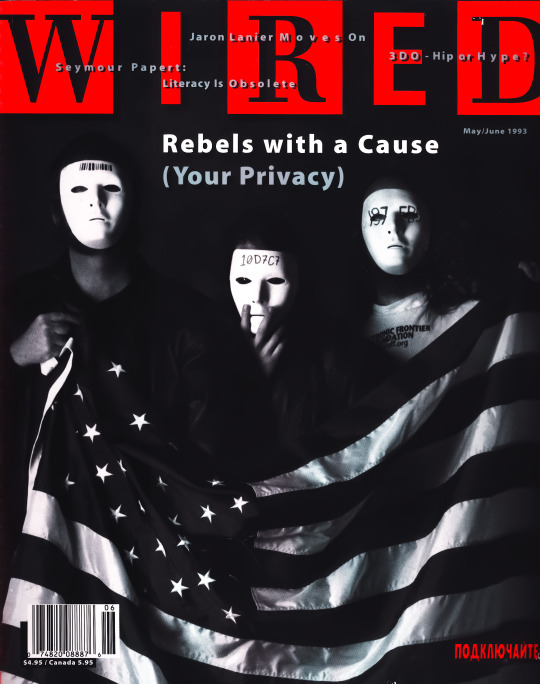#PGP
Photo



53 notes
·
View notes
Photo

60 notes
·
View notes
Text
I've probably said it before, and I'll say it again, if you are pregnant don't do any heavy lifting, even if its something you would've had no problem with before, avoiiiid it.
My second and third trimester would've gone without a hitch if I hadn't been like 'what's a measly 20kg bag of concrete, I carry this stuff all the time' earlier in my pregnancy. Granted it is hard to avoid these things when you have a physically demanding job. I've ended up with pelvic girdle pain for months [symphysis pubis dysfunction]. Your body is not the same body that could do those things prior to pregnancy. If one person avoids PGP from this ramble it will have been worth writing out.
3 notes
·
View notes
Note
If you ever have to answer any more asks on the Lalonders situation they responded to LibsofTiktok. I can’t link the thread because I quit Twitter.
But I can read the thread online, to sum it up, Lalonders wanted to hire a team that best reflected the chracters and writing for Validate, and since Validate is a game about queer people of color Lalonders decided to hire people she saw as best fit for the team.
She did hire some white people for work on validate. Their numbers and position is not specified.
She also talks about micro-aggressions and she wanted a sage environment for workers on the team for Validate, and addresses microaggressions are not isolated to any group or committed by one group.
Her current work at Cliffhanger and the Black Panther game is as Junior Associate Narrative designer, she is not someone who hires, but rather writes the story.
The video clip was also released before her work at Cliffhanger.
Mainly I want to share this information to keep facts straight, and also because I am not participating nor allowing the manifestation of “Gamergate 2.0” because not only is the movement blowing the impact of one consultant company’s reach over the gaming industry to exaggerated proportions, but it’s based on he said she said mob mentality, it’s anti-woke cancel culture.
Also do take my presentation with a bit of salt, I also think Gamergate Classic was bullshit and that Zoe Quinn and Anita Sarkeesian did nothing wrong and were unfairly slandered by angry nerds online who didn’t read or want to analyze any of the previously mentioned people’s material, and just share clips out of context that make them sound more outrageous than they actually are.
Anyway, have a good day.
Found the OP and other post.
It's funny to think about not having white people on the team despite claims of only POC people. They aren't any better than big corporations who also do this claim every June.
And I dunno. I don't trust bitches like Zoe Quinn or Anita Sarkesian. But is funny to think about the girl who helped with Homestuck with the same surname as one of the characters, is put under the same umbrella as the bitch who fucked with 5 guys.
And if you wanna hear more Dani's bad takes about Homestuck and her views on Roxy, check out episode 24 on Perfectly Generic Podcast. You'll wonder why you and I wasted 1 hour of your time.
#Sweet Baby Inc#Dani Lalonders#Dani Lalonde#Dani Lalonder#Perfectly Generic Podcast#PGP#PGenpod#Twitter#X#Twitter X#X Twitter
2 notes
·
View notes
Text

#old habits die hard#I was looking at Dotties old design and honestly#she slayed#Dotties new design got some big shoes to fill#my art#playgroundpals#pgp#dottie#tw sludge#idk what id consider the black goo as since its goo
6 notes
·
View notes
Text

such a sad kitty 😿😿😿😿😿😿😿
#roblox#cybercore#cyberdelic#drain#comme des garçons#vivienne westwood#pgp#tumblr swag#y2k vibes#y2kcore
8 notes
·
View notes
Text
AKSI NYATA MODUL 3.2


5 notes
·
View notes
Text
SKODA AUTO`s `India 2.0 Project`: A Lesson for Foreign Automakers in The Indian Market
In a strategic move called ‘INDIA 2.0’, the Volkswagen Group is investing one billion euros in collaboration with ŠKODA AUTO to develop new models for the Indian market. The project aims to position ŠKODA AUTO as the leader in Volkswagen Group’s planned model campaign in India. The investment will primarily take place between 2019 and 2021.
Key Points of the ‘INDIA 2.0’ Project:
Investment and…

View On WordPress
0 notes
Text
Pani Gold Project Selenggarakan Donor Darah di Bulan K3 Nasional 2024
Relasipublik.or.id, Pohuwato – Pani Gold Project menyelenggarakan aksi donor darah dan beberapa kegiatan lainnya dalam rangka menyambut Bulan Keselamatan dan Kesehatan Kerja (K3) Nasional yang diperingati pada 12 Januari-12 Februari setiap tahun.
Aksi donor darah tersebut diselenggarakan bekerjasama dengan Palang Merah Indonesia (PMI) Kabupaten Pohuwato yang diketuai Syarif Mbuinga. Kegiatan ini…

View On WordPress
0 notes
Photo

Illustration for "Автоматическая реакция" by notginger
60 notes
·
View notes
Text

The dawn of asymmetric key encryption via Phil Zimmermann's "Pretty Good Privacy" software.
In 1991, Phil Zimmermann, a software engineer and privacy advocate, released Pretty Good Privacy (PGP), a groundbreaking encryption software that provided individuals with the means to secure their digital communications. The creation and distribution of PGP marked a pivotal moment in the field of cryptography, fundamentally altering the dynamics of privacy, security, and governmental oversight on a global scale.
Technical Innovations of PGP
PGP introduced a robust, accessible encryption method to the general public, using a combination of asymmetric (public key) and symmetric encryption systems to enhance security and ease of use. The software implemented the RSA algorithm for its public key cryptography, which allowed users to encrypt data with a public key that could only be decrypted by a corresponding private key. For the actual data encryption, PGP used symmetric key cryptography, which was faster than asymmetric methods. The innovation did not stop there; PGP also introduced the use of digital signatures, allowing users to verify the integrity and origin of encrypted data.
One of the significant technical impacts of PGP was its use of a "web of trust," a decentralized trust model that allowed users to assign and verify the trustworthiness of public keys through a network of users rather than relying on a central authority. This approach was revolutionary in promoting user-driven security verification and managing public key authentication.
NSA's Concerns and the Broader Implications
The release of PGP did not go unnoticed by government entities, particularly the National Security Agency (NSA), which had long held a dominant role in cryptographic standards and intelligence gathering. The NSA and other law enforcement agencies were concerned about the implications of widespread access to strong encryption. Their primary fear was that encryption technologies like PGP would severely hinder their ability to conduct surveillance for national security purposes.
The concern was not unfounded. Before PGP, high-grade encryption was generally available only to government agencies and large corporations. By democratizing access to encryption technology, PGP enabled ordinary citizens to shield their communications from both governmental and non-governmental prying eyes. This shift posed a direct challenge to the NSA's capabilities, particularly in the areas of wiretapping and intercepting electronic communications, as encrypted content could not be easily decoded without access to the private keys.
Legal and Political Fallout
The distribution of PGP also led to significant legal and political repercussions for Zimmermann. Shortly after its release, Zimmermann became the subject of a criminal investigation by the U.S. government under the International Traffic in Arms Regulations (ITAR), which at the time restricted the export of cryptographic software deemed to be military-grade. The case highlighted the tension between national security interests and the right to privacy, stirring a global debate on the reach of U.S. export controls over software and the definition of "arms" in the context of cryptography.
Legacy and Continuing Impact
The controversy and subsequent legal battles surrounding PGP fueled a broader discussion about encryption, privacy, and civil liberties. It led to the relaxation of some export controls on cryptographic software in the late 1990s and helped pave the way for modern encryption protocols used over the internet, such as SSL/TLS for secure web browsing.
Moreover, PGP's influence extends beyond its technical contributions. It has played a crucial role in debates over privacy rights and surveillance, inspiring a new generation of encryption tools aimed at protecting individual privacy and securing communications in an increasingly digital world.
Conclusion
Phil Zimmermann's PGP software did not just provide a practical encryption tool—it sparked a significant societal shift towards individual privacy and security consciousness. The NSA's fears regarding the widespread availability of such technology underscore the ongoing tension between privacy rights and government surveillance capabilities. PGP remains a seminal work in the history of cryptography, symbolizing the power of individual empowerment against overarching surveillance.
#cryptography#asymmetric key encryption#PGP#Pretty Good Privacy#Phil Zimmermann#Wired#1993#Encryption#Too Many Secrets
0 notes
Text
0 notes
Note
Im trying to remember if that 2 hour live stream from years ago about why the strilondes are black or something was hosted by the validate creator or not.
Maybe it was on one of the Perfectly Generic Podcast episodes. Dani was one of the guests on there for the Roxy one.
#Rose Lalonde#Roxy Lalonde#Dave Strider#Dirk Strider#Perfectly Generic Podcast#PGP#Pgenpod#Validate#Homestuck
5 notes
·
View notes
Text
0 notes
Text

Ready to rejig the financial world?
Elevate your Entrepreneurship abilities with our 11-Months Post Graduate Program in Financial Entrepreneurship with US CPA
Blended Mode with 3 Campus Immersions...
Applications Open Apply Now!
Visit: https://edii-becker.fintram.com/
To know more contact: +91-8448422816
#edii#business#enterpreneurship#enterpreneur#becker#cpa#finance#pgp#ahmedabad#gujarat#EDII#finentre#fintramglobal#launch#ediiahmedabad#Startup#Business#GlobalEntrepreneur
0 notes